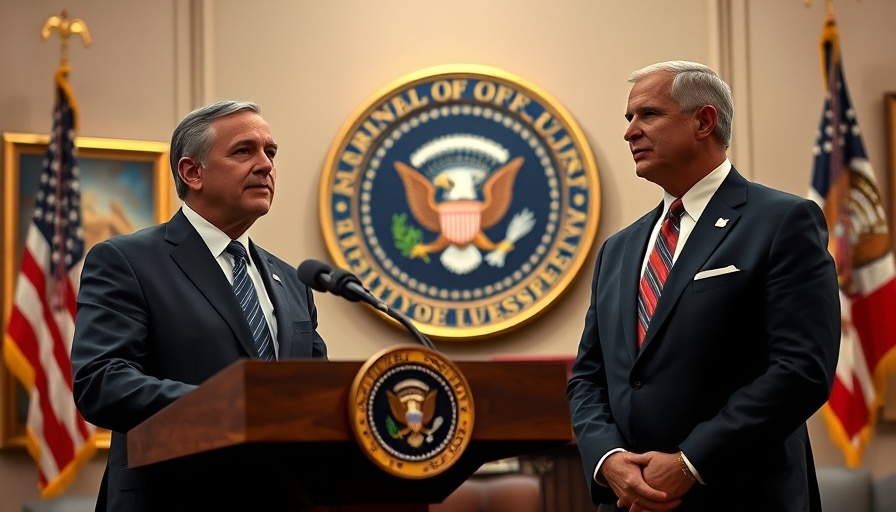
OpenAI's Call for Change: Strengthening AI's Future through Copyright Reforms
In a recent proposal, OpenAI, the tech powerhouse known for ChatGPT, has urged the U.S. government to relax copyright constraints, making it easier for AI models to train on existing copyrighted material. This push comes as part of President Donald Trump's forthcoming "AI Action Plan," which aims to stimulate innovation within the AI sector.
Why Copyright Matters for AI Development
Copyright laws have long been a contentious subject in the world of AI. As OpenAI noted, the stringent regulations surrounding copyrighted content are seen as significant barriers, preventing companies from utilizing essential resources to train models effectively. This proposal insists that embracing a more “freedom-focused” approach could bolster not only innovation in the United States but also equity between content creators and AI developers.
The Stakes are High: National Security and Global Leadership
The AI landscape is often compared to an arms race, and maintaining leadership is essential for American interests. According to OpenAI, the ability to freely use copyrighted material is crucial for the U.S. to stay ahead of competitors such as China. Their proposal emphasizes that by adopting lax copyright measures, the U.S. can outfit its AI with the knowledge needed to tackle critical challenges—an angle that leaders in AI and administration highlights as vital for national security.
The Controversies Surrounding Copyright in AI
However, OpenAI's call doesn’t come without a storm of criticism. The organization faces several lawsuits from news outlets and artists claiming infringement over the use of their intellectual property without consent or compensation. This has raised questions about what “fair use” genuinely means in the context of rapidly advancing technologies. OpenAI argues that responsible policies could protect creators while still allowing AI systems to thrive, but many are skeptical about how this balance can be achieved.
Historical Context: The Evolution of Copyright in the Digital Age
The conversation surrounding copyright and AI isn't new. From the Digital Millennium Copyright Act passed in 1998 to recent cases challenging the use of AI by tech companies, the legislative landscape has struggled to keep pace with technological advancements. OpenAI's proposition to reform copyright laws may serve as a pivotal moment in this ongoing dialogue, potentially establishing guidelines that could shape future AI training practices.
Comparative Advantage: How Other Countries Approach AI and Copyright
Countries like the UK have grappled with similar issues surrounding copyright laws and AI technology. Past assertions from OpenAI suggest that excessively strict regulations could stifle AI development and prevent systems from meeting current societal needs. It’s a strong reminder that nations not only compete for economic advantages but also for technological breakthroughs.
The Future of AI and Copyright: What Lies Ahead?
Going forward, the proposal from OpenAI indicates a pivotal shift in how the United States may leverage its intellectual property laws in the AI landscape. With significant investments in AI infrastructure and upgrades to outdated copyright frameworks, the nation could set its path toward solidifying its role as a leader in the global AI race.
Actions You Can Take: Staying Informed About AI Developments
As technology continues to evolve, it's important for individuals and businesses to stay informed about changes in policy that may directly impact AI development and copyright laws. Engaging in conversations online, contributing to forums, or following industry news can ensure that you remain part of the dialogue regarding how AI shapes our future.
The world of artificial intelligence is advancing rapidly. As OpenAI pushes for policy reforms to relax copyright laws, keep an eye on how these changes might affect everything from creative industries to technological innovations that could shape our society for generations to come. Be part of the conversation about how we can ensure balance between protecting intellectual property and advancing technology for the greater good.
 Add Row
Add Row  Add
Add 




 Add Row
Add Row  Add
Add 

Write A Comment